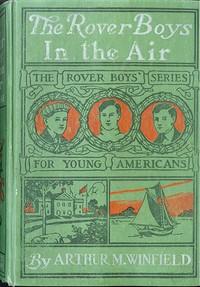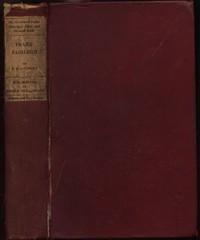|
|
Read this ebook for free! No credit card needed, absolutely nothing to pay.Words: 72243 in 24 pages
This is an ebook sharing website. You can read the uploaded ebooks for free here. No credit cards needed, nothing to pay. If you want to own a digital copy of the ebook, or want to read offline with your favorite ebook-reader, then you can choose to buy and download the ebook.

: Historic Tales: The Romance of Reality. Vol. 06 (of 15) French by Morris Charles - France History@FreeBooksTue 06 Jun, 2023 that day if he had foreseen the pope's intentions; yet it is not easy to believe that he was ignorant of or non-consenting to the coming event. At the close of the chant Leo prostrated himself at the feet of Charlemagne, and paid him adoration, as had been the custom in the days of the old emperors. He then anointed him with holy oil. And from that day forward Charles, "giving up the title of patrician, bore that of emperor and Augustus." The ceremonies ended in the presentation from the emperor to the church of a great silver table, and, in conjunction with his son Charles and his daughters, of golden vessels belonging to the table of five hundred pounds' weight. This great gift was followed, on the Feast of the Circumcision, with a superb golden corona to be suspended over the altar. It was ornamented with gems, and contained fifty pounds of gold. On the Feast of the Epiphany he added three golden chalices, weighing forty-two pounds, and a golden paten of twenty-two pounds' weight. To the other churches also, and to the pope, he made magnificent gifts, and added three thousand pounds of silver to be distributed among the poor. Thus, after more than three centuries, the title of Augustus was restored to the western world. It was destined to be held many centuries thereafter by the descendants of Charlemagne. After the division of his empire into France and Germany, the imperial title was preserved in the latter realm, the fiction--for it was little more--that an emperor of the west existed being maintained down to the present century. As to the influence exerted by the power and dominion of Charlemagne on the minds of his contemporaries and successors, many interesting stories might be told. Fable surrounded him, legend attached to his deeds, and at a later date he shared the honor given to the legendary King Arthur of England, of being made a hero of romance, a leading character in many of those interminable romances of chivalry which formed the favorite reading of the mediaeval age. But we need not go beyond his own century to find him a hero of romance. The monk of the abbey of St. Gall, in Switzerland, whose story of the defences of the land of the Avars we have already quoted, has left us a chronicle full of surprising tales of the life and doings of Charles the Great. One of these may be of interest, as an example of the kind of history with which our ancestors of a thousand years ago were satisfied. Charlemagne was approaching with his army Pavia, the capital of the Lombards. Didier, the king, was greatly disquieted at his approach. With him was Ogier the Dane , one of the most famous captains of Charlemagne, and a prominent hero of romance. He had quarrelled with the king and had taken refuge with the king of the Lombards. Thus goes on the chronicler of St. Gall: "When Didier and Ogger heard that the dread monarch was coming, they ascended a tower of vast height, where they could watch his arrival from afar off and from every quarter. They saw, first of all, engines of war such as must have been necessary for the armies of Darius or Julius Caesar. "'Is not Charles,' asked Didier of Ogger, 'with this great army?' "But the other answered, 'No.' The Lombard, seeing afterwards an immense body of soldiery gathered from all quarters of the vast empire, said to Ogger, 'Certainly, Charles advances in triumph in the midst of this throng.' "'No, not yet; he will not appear so soon,' was the answer. "'What should we do, then,' rejoined Didier, who began to be perturbed, 'should he come accompanied by a larger band of warriors?' "'You will see what he is when he comes,' replied Ogger; 'but as to what will become of us I know nothing.' Free books android app tbrJar TBR JAR Read Free books online gutenberg More posts by @FreeBooks
: The Mermaid: A Love Tale by Dougall L Lily - Physicians Fiction; Prince Edward Island Fiction; Canada Social life and customs Fiction; Iles-de-la-Madeleine (Québec) Fiction@FreeBooksTue 06 Jun, 2023

: The Rover Boys in the Air; Or From College Campus to the Clouds by Stratemeyer Edward - Detective and mystery stories; Biplanes Juvenile fiction; College students Juvenile fiction; Brothers Juvenile fiction Children's Book Series@FreeBooksTue 06 Jun, 2023
|
Terms of Use Stock Market News! © gutenberg.org.in2025 All Rights reserved.






